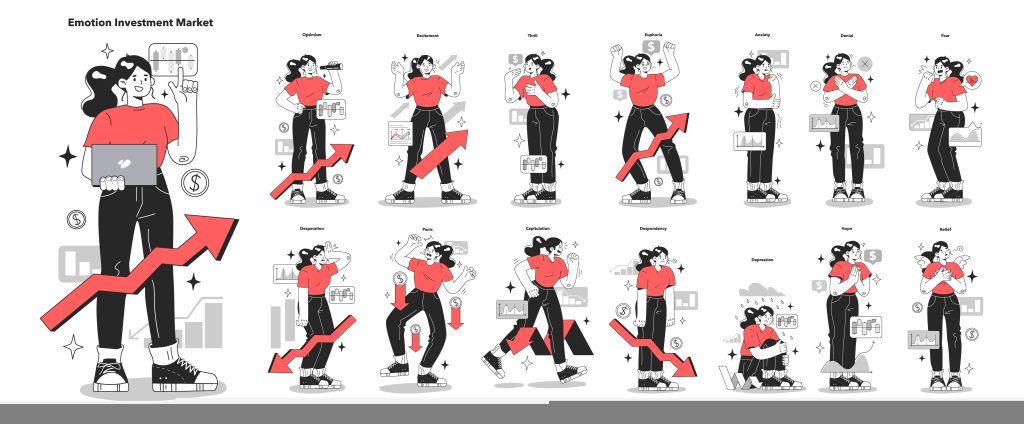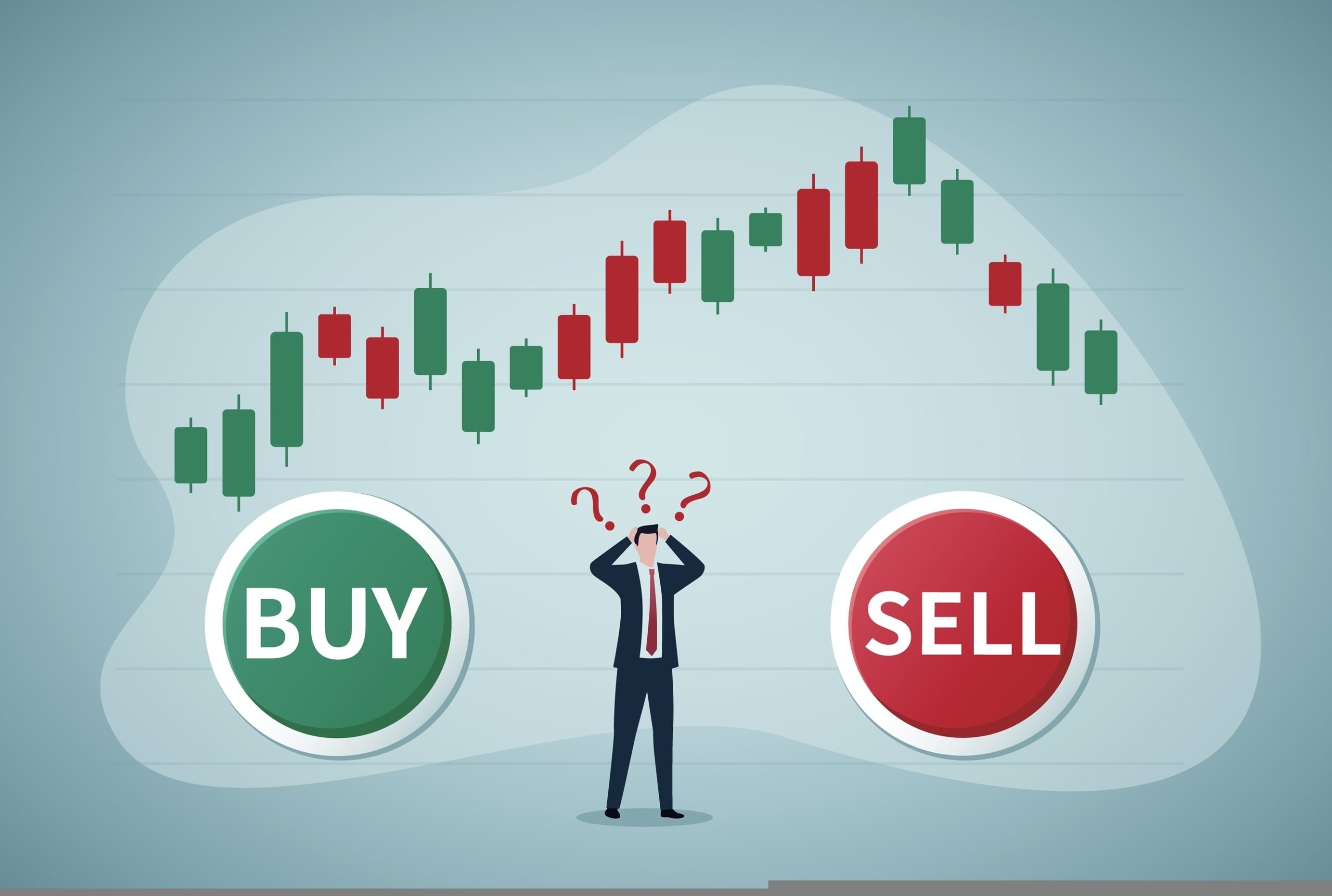The Dangerous Mindset That Ruins Traders
In the high-stakes world of trading, one of the most significant emotional pitfalls traders can face is FOMO, or the Fear of Missing Out. While it might sound like a harmless feeling, FOMO is often the spark that leads to impulsive decisions, rapid losses, and ultimately, the destruction of trading accounts.
In this article, we’ll dive deep into what FOMO is, how it affects traders’ behavior, its psychological triggers, and—most importantly—how you can avoid falling victim to it.
👉 See also: Stock Market Mistakes to Avoid in 2025
What Triggers FOMO in Trading?
Understanding the emotional and psychological triggers of FOMO is essential in overcoming it. Here are the primary factors that ignite the fear of missing out among traders:
1. Explosive Market Moves
Nothing sets off FOMO more quickly than a sudden price surge. Whether it’s a cryptocurrency like Bitcoin going from $10,000 to $20,000 in a matter of days or a stock jumping 15% overnight, these explosive moves can trigger a sense of urgency.
- Example: The meteoric rise of GameStop stock in 2021 is a perfect case where traders jumped into the fray, not wanting to miss out on the “next big thing.” What followed was a classic scenario of FOMO, leading many to buy at the top and face significant losses when the price corrected sharply.
2. Social Media & Influencer Hype
In today’s digital age, social media has a powerful influence on trading decisions. Twitter, Reddit, YouTube, and TikTok are flooded with influencers and traders boasting about their profitable trades. The constant stream of “winning” trades can easily influence traders to follow the herd, leading them to chase the same trade without a solid strategy.
- Example: Cryptocurrencies like Dogecoin experienced significant price spikes thanks to Elon Musk’s tweets. Traders who succumbed to FOMO jumped in at the top, only to watch the price crash shortly after.
3. Regret Over Past Missed Opportunities
Another critical trigger for FOMO is regret. When traders witness others profiting from a move they overlooked, the desire to “catch up” becomes overwhelming. This psychological need to make up for lost opportunities can push traders into risky positions.
- Example: Missing out on Tesla’s stock rise from $200 to $1,000 in 2020 may make a trader feel the need to act quickly when they see the next opportunity, even without doing due diligence.
4. Herd Mentality & Group Psychology
Humans are social creatures, and this natural instinct also affects traders. When everyone is rushing to buy, the fear of being left behind can become overwhelming. This is where the herd mentality takes hold. Traders assume that if many people are buying, it must be a safe bet, even when there’s no solid basis for the trade.
- Example: The NFT boom in 2021 saw a massive influx of traders buying digital art, often based on nothing more than hype and the fear of missing out on the next “million-dollar sale.”
5. News & Economic Events
The news is another common FOMO trigger. Headlines about central bank rate cuts, positive earnings reports, or geopolitical events can push traders to make rapid decisions, fearing they’ll miss an opportunity if they don’t act immediately.
- Example: A sudden interest rate cut by a central bank could create a rush of forex traders, all trying to capitalize on short-term price movements. This could trigger FOMO, especially among those who didn’t plan their trades ahead of time.
How FOMO Affects Traders’ Behavior
FOMO doesn’t just create a fleeting emotion; it fundamentally alters how traders behave. Here’s how:
1. Impulsive Buying at the Worst Moments
One of the most damaging consequences of FOMO is impulsive buying, often at the peak of a rally. Traders driven by FOMO tend to act without any strategy or risk management, entering trades at the worst possible moment.
- Example: When Bitcoin reached its all-time high of $69,000, many traders, motivated by FOMO, rushed to buy. As expected, Bitcoin quickly corrected, leaving those traders with massive losses.
2. Overtrading & Chasing the Market
FOMO often leads to overtrading. In an attempt to compensate for missed opportunities, traders may open multiple positions, jumping from one trade to another without clear strategy or planning.
- Example: A trader might open positions in USD/JPY, GBP/USD, and EUR/USD all at once, without any solid reasoning behind these trades. This increases exposure and the risk of significant losses.
3. Ignoring Risk Management
A crucial part of successful trading is adhering to strict risk management rules. However, FOMO often leads traders to ignore these rules. They may take oversized positions or remove stop-loss orders in the belief that the market will continue in their favor.
- Example: A trader may risk 10% of their account on a single trade because they’re desperate to “catch the wave” they see on social media or elsewhere.
4. Holding Onto Losing Trades for Too Long
When a trader falls into the FOMO trap, they often hold on to losing trades far too long, hoping that the market will turn in their favor. This emotional attachment to a trade can drain resources and create more significant losses.
5. Emotional Rollercoaster & Burnout
The constant stress and anxiety of trading under the influence of FOMO can lead to emotional burnout. The market’s volatility, combined with a trader’s emotional instability, can result in poor decision-making, missed opportunities, and total exhaustion.
Recognizing the Symptoms of FOMO
How can you tell if you’re falling victim to FOMO in your trading? Here are the classic symptoms:
- Constantly checking the markets: You find yourself obsessively monitoring price movements, often at odd hours, just to “stay in the loop.”
- Feeling regret after missing a trade: You kick yourself when you see others profiting from a move you missed.
- Trading without a strategy: You jump into trades based on gut feelings or social media hype, not a well-defined plan.
- Panic during market moves: You feel anxiety or panic when the market moves in unexpected ways, fearing you’re missing out.
- Making decisions on impulse: You take action based on emotions or external pressure, not logic.

The Effects of FOMO in Forex and Crypto Markets
FOMO not only affects individual traders, but it also has broader implications for the markets themselves.
1. Increased Market Volatility
FOMO-induced buying and selling can cause sharp price swings, making markets more volatile. This is especially evident in cryptocurrency markets, where emotional trading can lead to significant price fluctuations.
- Example: A market that sees a rapid rise followed by a sudden fall is often driven by FOMO traders acting on emotion rather than analysis.
2. Retail Traders Losing to Institutions
FOMO also makes it easier for institutional traders, hedge funds, and market makers to take advantage of retail traders. When retail traders flood into a market based on FOMO, they often enter at the wrong time, and institutions sell into the rally, profiting from the inexperienced traders.
- Example: During a market rally, institutional investors may sell off their positions, profiting from retail traders who bought in during the hype.
3. Price Manipulation & Pump-and-Dumps
FOMO opens the door for market manipulation. Scammers and unscrupulous market players can create false hype, inflate prices, and then dump their assets on unsuspecting traders, leading to crashes.
How to Avoid FOMO in Trading?
Avoiding FOMO requires a combination of discipline, risk management, and emotional control. Here are some strategies to help you stay on track:
1. Stick to a Trading Plan
The best way to avoid FOMO is by having a clearly defined trading plan. Set specific entry and exit points, and never chase a trade because of hype or fear. Stick to your strategy, and trust the process.
2. Use Stop-Loss & Risk Management
Risk management is key to surviving the FOMO trap. By using stop-loss orders and never risking more than 2% of your capital on a single trade, you protect yourself from massive losses.
3. Block Out the Noise
Limit your time on social media and avoid forums filled with market hype. The less you’re exposed to the noise, the less likely you are to be influenced by it.
4. Accept That You Can’t Catch Every Trade
One of the hardest truths to accept as a trader is that you can’t win every trade. Opportunities will always come and go, but the key is to stay patient and wait for the right ones.
5. Learn to Love Sitting on the Sidelines
Sometimes, the best decision is no decision at all. If a trade doesn’t fit your criteria, simply sit on the sidelines. There will always be another opportunity.
The Market Will Always Be There
FOMO is one of the most dangerous emotions in trading. It’s a quick path to emotional burnout, overtrading, and heavy losses. The key to avoiding it is discipline, patience, and a solid trading plan. Remember, there will always be new opportunities in the market—but only if you’re ready to seize them with a clear mind.





Leave A Comment